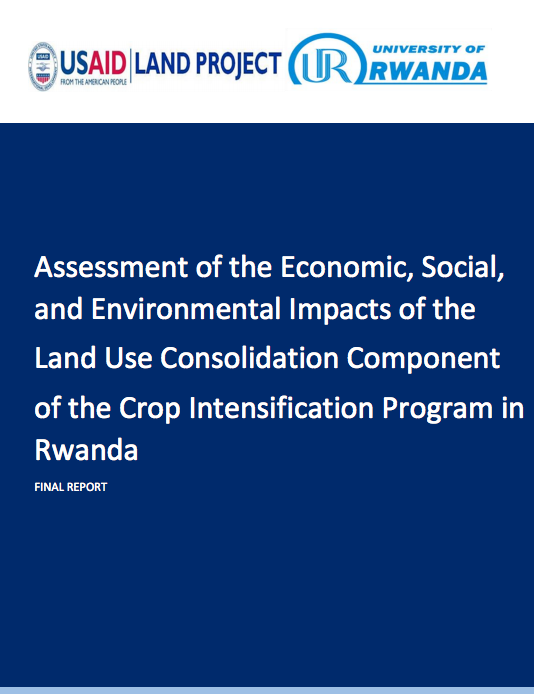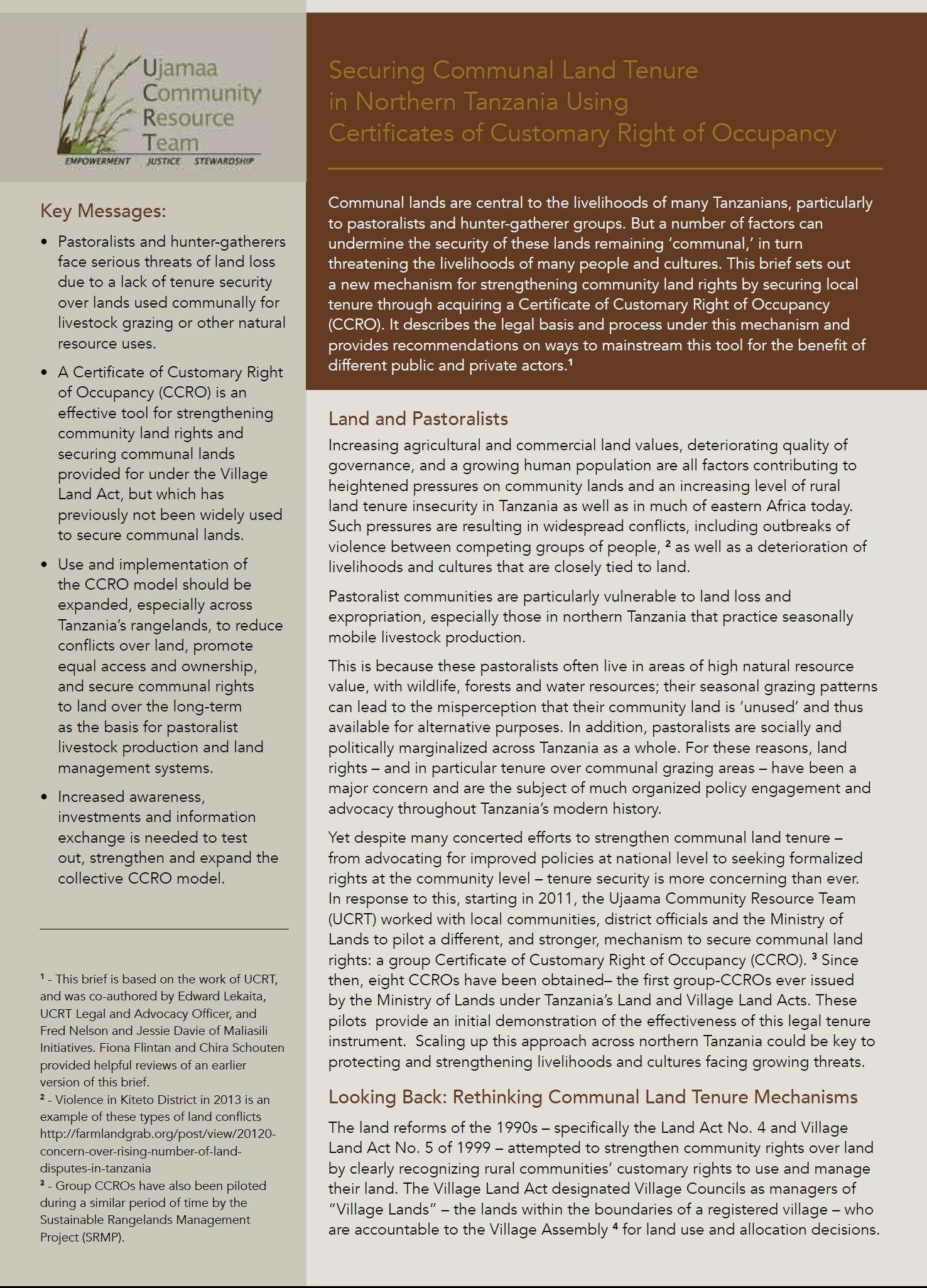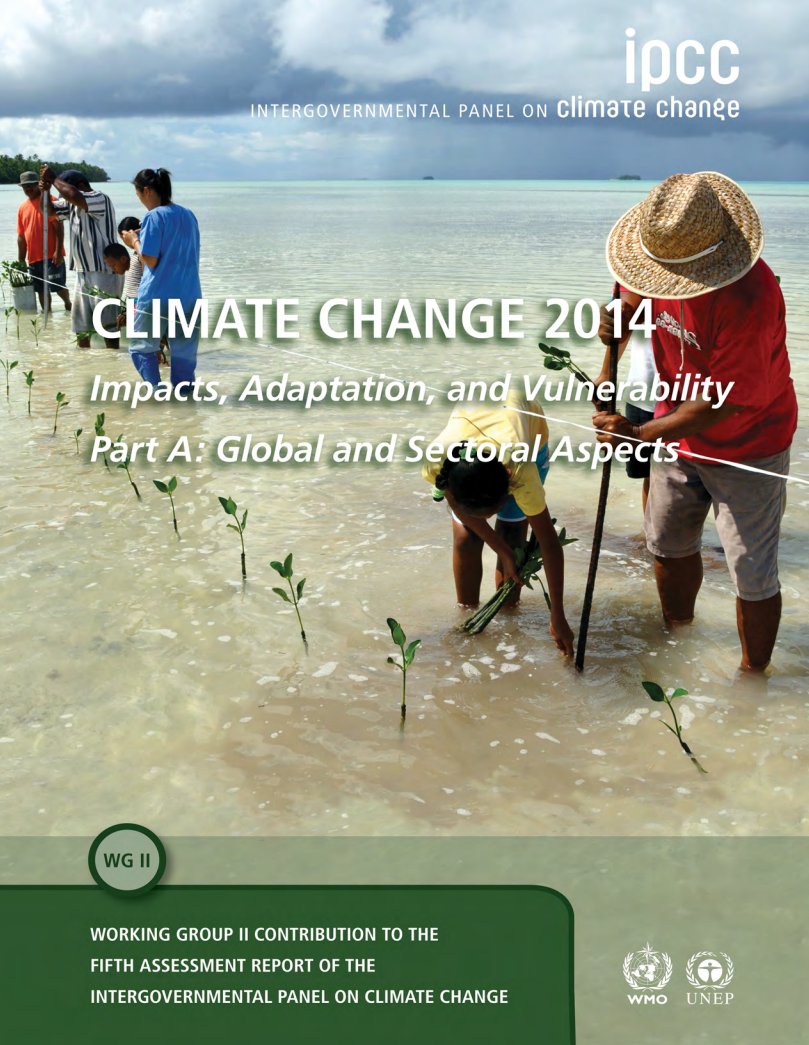Terra Incognita:Land degradation as underestimated threat amplifier. Clingendael Report
Land degradation is increasingly recognised as global challenge and is even pushed for as candidate for a (post-2015) Sustainable Development Goal (SDG). The ‘quality of soil’ has been linked to the emergence of conflict, inter alia since it aggravates food and water scarcity. It is an underestimated, but essential element in the nexus of global challenges related to food, water and energy.
Down on the farm: Wall street: America's new farmer
The first years of the twenty-first century will be remembered for a global land rush of nearly unprecedented scale. An estimated 500 million acres, an area eight times the size of Britain, was reported bought or leased across the developing world between 2000 and 2011, often at the expense of local food security and land rights.
Assessing global land use: Balancing consumption with sustainable supply
This report explores how the management of land-based biomass production and consumption can be developed towards a higher degree of sustainability across different scales: from the sustainable management of soils on the field to the sustainable management of global land use as a whole.
Desertification: The invisible frontline
Desertification is a silent, invisible crisis that is destabilizing communities on a global scale. As the effects of climate change undermine livelihoods, inter-ethnic clashes are breaking out within and across states and fragile states are turning to militarization to control the situation.
Final Report: Land Use Consolidation and Crop Intensification In Rwanda
The Land Use Consolidation Act (LUC) was introduced in 2008 and is an important
component of agricultural policy in Rwanda. As part of the Government of Rwanda’s
broader Crop Intensification Program (CIP), LUC entails participating farmers
consolidating aspects of their operations with neighboring farmers, while retaining
Securing Communal Land Tenure in Northern Tanzania Using Certificates of Customary Right of Occupancy
Communal lands are central to the livelihoods of many Tanzanians, particularly to pastoralists and hunter-gatherer groups. But a number of factors can undermine the security of these lands remaining ‘communal,’ in turn threatening the livelihoods of many people and cultures.
The Plight and Challenges of the Landless People on their Quest for their Land Rights in the Southwest Region
Climate Change 2014: Impacts, Adaptation, and Vulnerability
Climate change impacts, adaptation, and vulnerability span a vast range of topics.With the deepening of knowledge about climate change, we see connections in expanding and diverse areas, activities, and assets at risk. Early research focused on direct impacts of temperature and rainfall on humans, crops, and wild plants and animals.
Facts about Zambia Agriculture Sector
Zambia Agriculture Development Goal:
Reduce poverty through broadbased income growth for those in the agricultural sector
Zambia’s Economic Achievements:
Classified as low-middle income by World Bank
GDP growing at 6% per annum
Agricultural growth rate at 7%, above 6% CAADP Goal
Three consecutive maize bumper harvest years
Land-based adaptation and resilience : Powered by nature
Land has many uses. It provides water, food and energy. It is used to create wealth and employment and grow economies. And it provides other, often less obvious and tangible, services such as conserving biodiversity, storing carbon, purifying and storing water. It even regulates the Earth’s climate, for instance, by absorbing the heat from the sun.
Land Degradation Neutrality : Resilience at local, national and regional levels
Land degradation refers to any reduction or loss in the biological or economic productive capacity of the land resource base. It is generally caused by human activities, exacerbated by natural processes, and often magnified by and closely intertwined with climate change and biodiversity loss.





